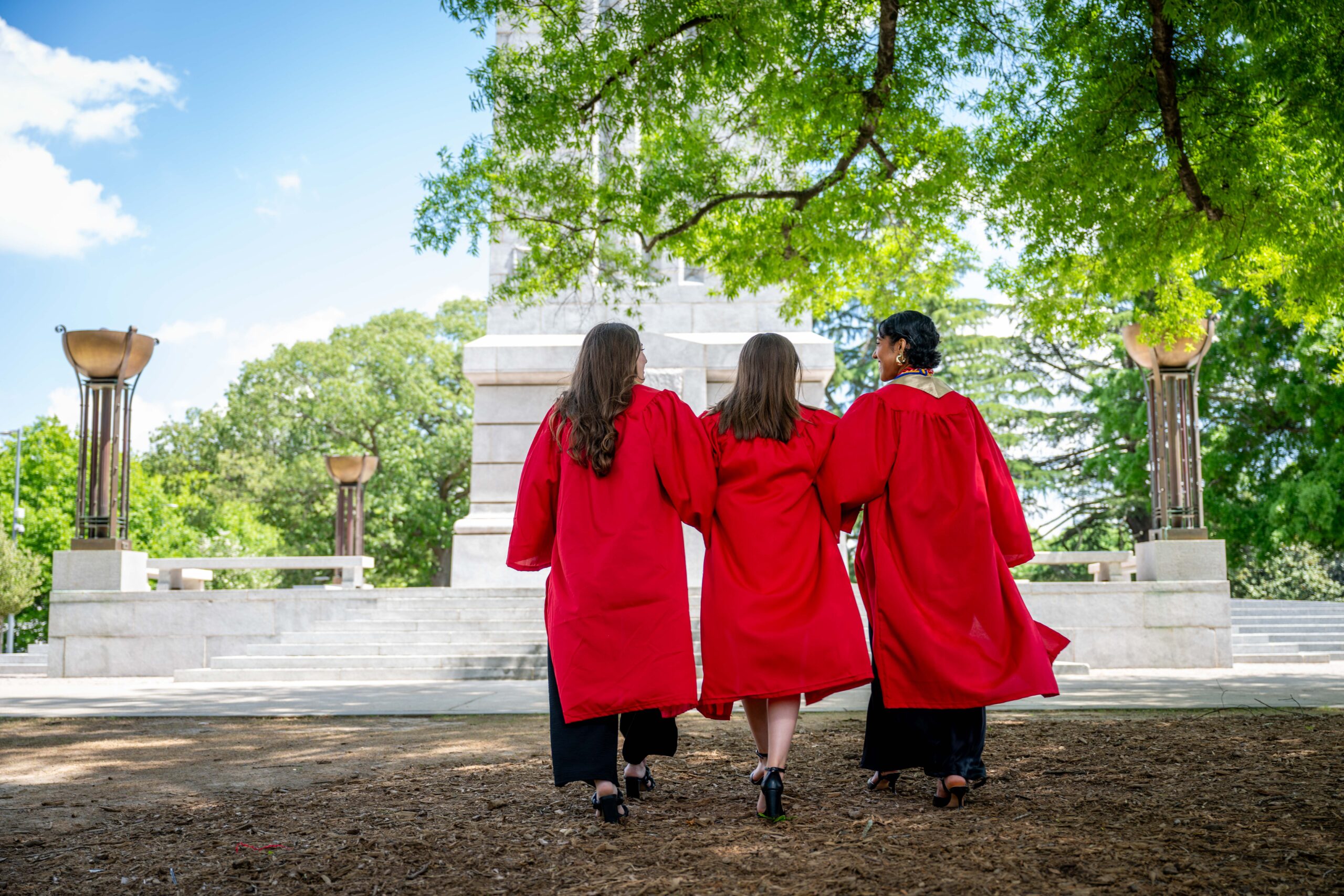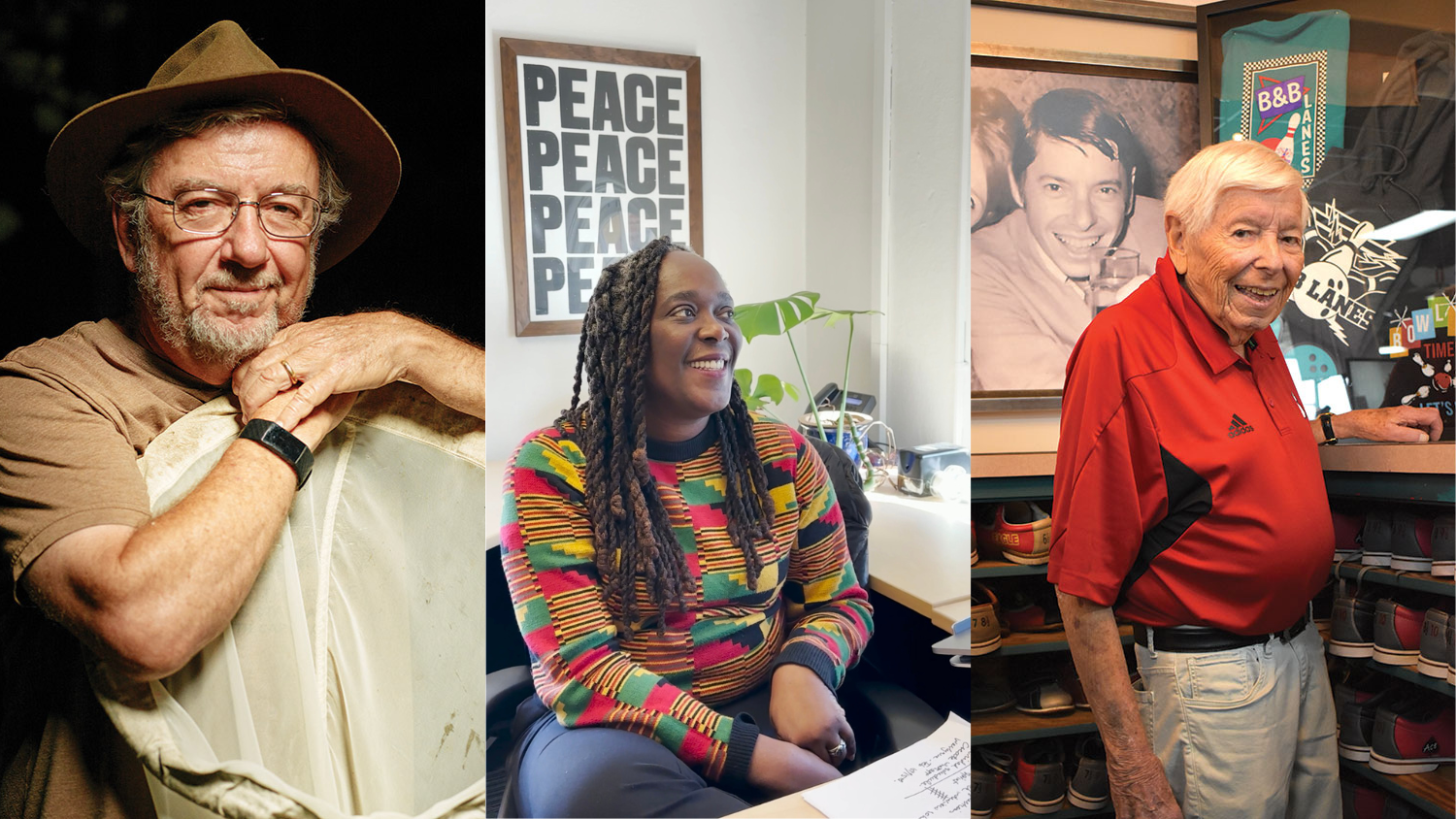From Small-Town Student to Campus Leader
Justin Richardson, a proud member of the Haliwa-Saponi tribe, is dedicated to supporting Native American students and advancing equity on NC State’s campus and beyond.
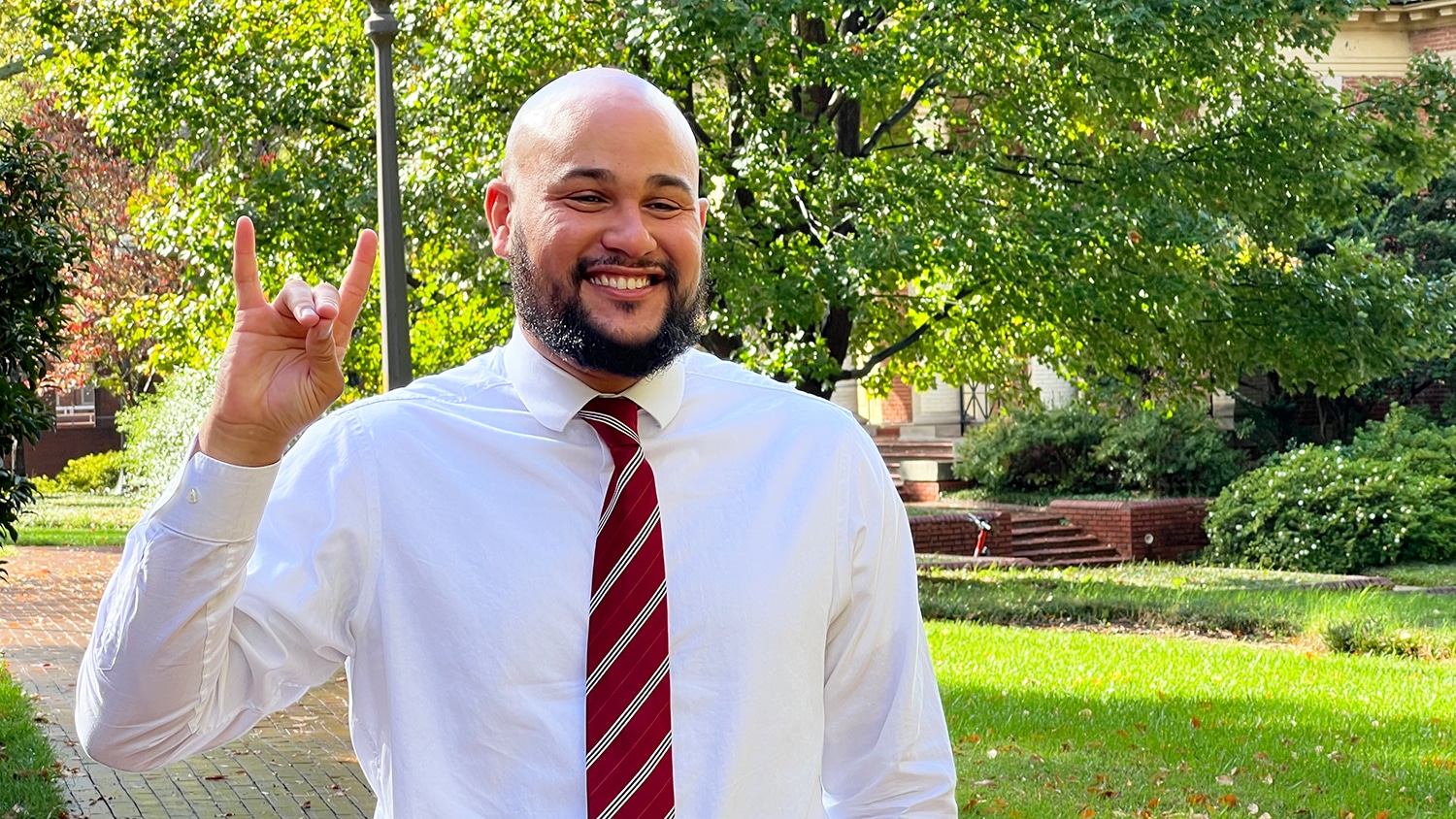
Justin Richardson never imagined being the first in his family to go to college — much less earning a communication degree from NC State and serving as a campus leader who now helps other students achieve their dreams.
As senior assistant director in the Office of Undergraduate Admissions, Richardson leads Native American recruitment and student outreach while also serving as program coordinator for the Native Education Forum, Rev Up and Pack Preview.
A proud member of the Haliwa-Saponi tribe from Hollister, North Carolina, Richardson is vice president of the NC State American Indian Alumni Society and the Chief of Expansion for Phi Sigma Nu Fraternity, Inc. He is also one of the founders of Miskwa Waya, a Native American drum group at NC State — which, as he says, “gives me a way to get back in touch with who I am.”
Richardson is a passionate advocate for Native American students and is dedicated to advancing equity on NC State’s campus and beyond. Read on to learn more about his journey from small-town student to higher education leader.
This interview has been edited for length and clarity.
What brought you to NC State?
I’m from a very small town in a Tier 1 county here in North Carolina. I didn’t really think I could come to a big school like NC State. My high school counselor really encouraged me to check out the university and to apply. He thought the First Year College, which is now called exploratory studies, would be good for me because I didn’t know what I wanted to major in. So I applied, ended up getting in, came to the admitted student day and just fell in love with campus. It didn’t feel like a really big school, which I was kind of worried about, coming from such a small area with no stop lights, no big downtown. I felt welcome on campus … just felt at home when I came here … so I decided this is where I want to be.
What were some of the challenges you faced in your first year here?
I always say I felt like a little kid in a candy store when I first got to NC State. It felt amazing just being out … and enjoying campus life. The challenges came in the classroom. In high school I was very fortunate that the work came a little bit easy for me … and coming here it was very hard setting bigger goals for myself. Learning how to study and keep up in my classes, I think was my biggest culture shock. It took me a while to get used to it and learn how to reach out and ask for help.
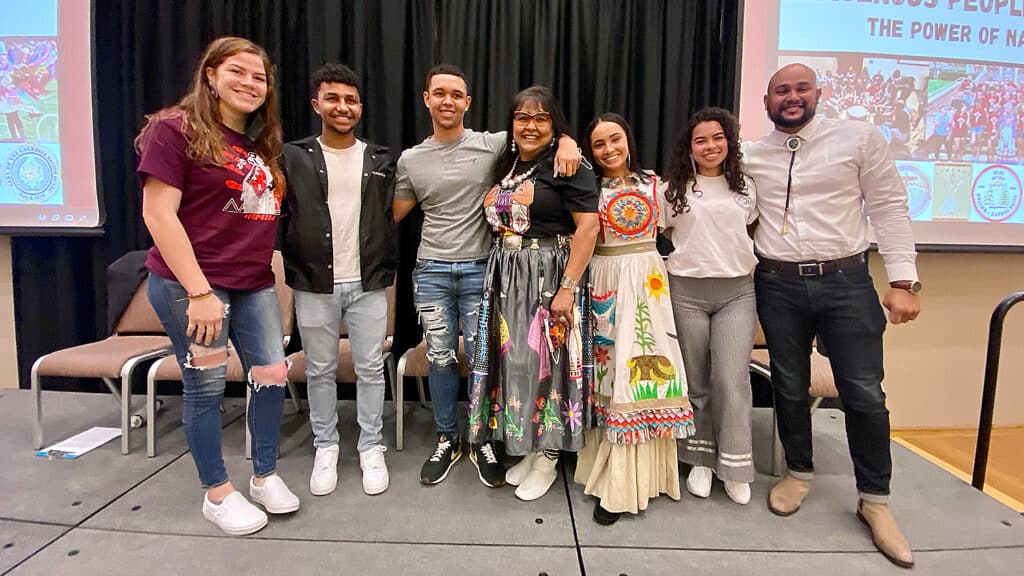
What were the highlights of your experience as a student at NC State?
The opportunities and connections. I made good friends. We all lived in Owen Residence Hall, and we’re still friends to this day. We were able to get really close and create a support system for each other. They were my family away from home, which I really appreciated.
And then in my junior year I got more serious about thinking about my personal community, how I can help other native students advocate for themselves. I also started looking a little bit more into job opportunities … and asking for some assistance with things like my resume. I really connected with Multicultural Student Affairs, and the assistant director at that time, Ian Stroud, helped gear me toward a more professional career path. [He taught me] how to reach out and build connections and network … really pushing me to go beyond the normal that I was used to.
I became vice president of the Native American Student Association and Ian said, “Okay, you made it this far, you’re going to graduate. You’ve done a lot for yourself, but what have you done to help other people after you?” And that really hit me and got me thinking about the things I’ve done on campus and the help and support I’ve received.
I interned for the admissions office during my junior and senior years … worked a lot of events where we talked about our story, our experience here in college and what made us choose NC State. I got hired as a counselor after I graduated, and that year we started our pre-college program, Native Education Forum. It was geared toward students [who identify as] American Indian or have an interest within the culture. I helped with the planning and implementation of that program.
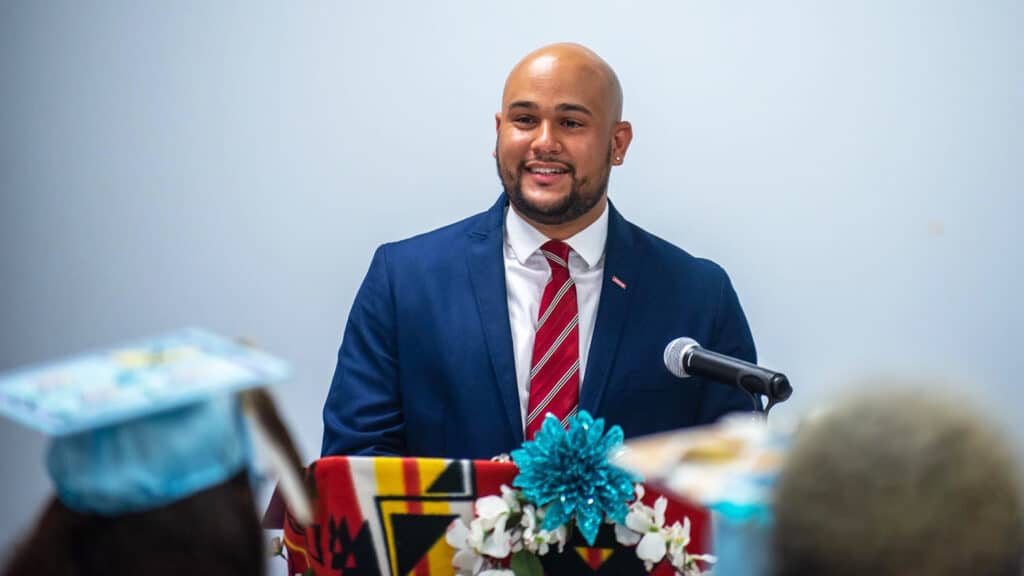
How does it feel being a young person — a recent grad — helping students with similar backgrounds?
It’s humbling, and to this day, it feels amazing … I’m able to connect with them and be that person, like a peer mentor. [I tell them] I was in your shoes very recently, and I can help you and support you. You can trust us and use our office and programs for your success. I don’t focus just on native students, it’s just that I identify with those students. I’m really passionate about it.
I sold myself short a lot in high school, and I want these students to believe anything is possible. I’ll tell students you’re always going to hit some kind of speed bump. And the question is, are you going to be able to get over it or are you going to stop? So it’s making sure they have that belief in themselves. And one of the reasons why I really enjoy doing this is the excitement I see when they find the schools that are a fit for themselves.
People tell me that I have an impact, and sometimes it feels really weird because in my head I still feel young and I feel like I have so much to learn, but it’s the giving back that I truly enjoy.
What would you want non-Native people to know about the Native American community?
I would say remember that we are still here. When I first came to NC State, some people said they didn’t know Native Americans existed, or they had all these questions. For me personally, I love answering questions and breaking down barriers. But don’t forget we’re still here. Even though we are a smaller population here on campus, it is important to us to make sure we feel welcome, to be supported, and to also use our voice. Historically, it’s been overshadowed or washed out, but our voice and the things we care about are still important, especially for students.
If you look up demographic stats online, it’ll normally show that native students are one of the lowest rates of students going to college. So knowing that we can help and support them … it’s the best feeling in the world.
This post was originally published in NC State News.
